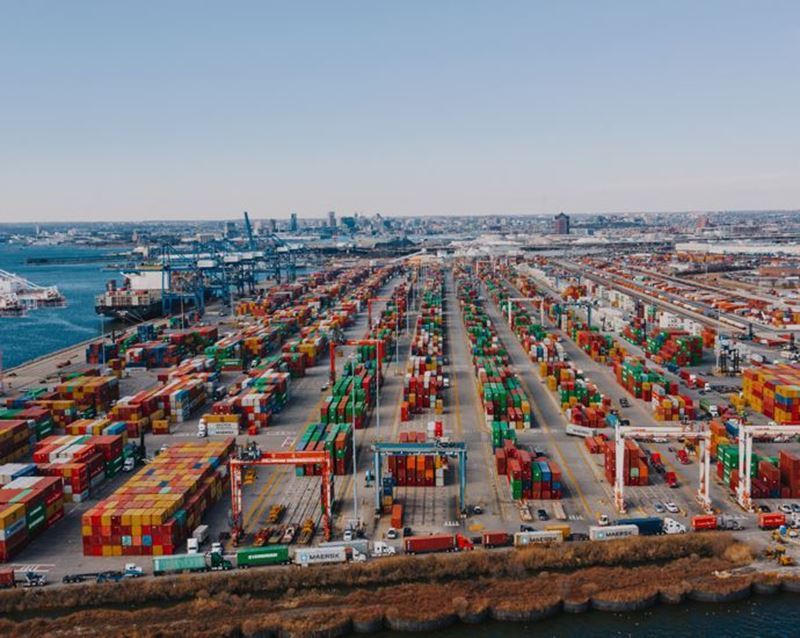The increase in developments that may adversely affect economic activity around the world makes pricing difficult in the markets.
While the profitability of the companies in the balance sheets announced in the USA yesterday supported the risk appetite, technology stocks led the rise in the New York stock market yesterday.
Signs from macroeconomic data, on the other hand, indicate that the risk of recession continues in the country.
Second-hand home sales fell to the lowest level since June 2020, down 5.4 percent on a monthly basis in June, as housing prices hit a record high and interest rates rose, according to data released in the US yesterday.
Mortgage (housing loan) applications in the country also decreased by 6.3 percent last week compared to the previous week, while mortgage demand fell to the lowest level in 22 years. In the USA, 30-year mortgage loan rates are close to the peak of the last 14 years with an average of 5.82 percent.
While the signs of recession in the US housing market eroded the risk appetite in the markets, the contraction in the housing market due to the economic structure of the USA is seen as one of the harbingers of a recession in the country.
On the other hand, the expectations that the US Federal Reserve (Fed) will be content with an interest rate hike of 75 basis points in July continue.
While it is priced in the money markets that the Fed will increase interest rates by 75 basis points with a 66 percent probability in July, it is predicted that the bank will increase interest rates by 75 basis points with 50 percent probability and by 50 basis points with a 33 percent probability at the September meeting.
With these developments, the S&P 500 index gained 0.59 percent, the Nasdaq index gained 1.58 percent and the Dow Jones index gained 0.15 percent in the New York stock market yesterday. Index futures contracts in the USA started the new day with mixed movements.
In Europe, the eyes were turned to the ECB's interest rate decision and the statements of ECB President Christine Lagarde.
While it is considered certain that the bank will increase the policy rate by at least 25 basis points, the expectation of a 50 basis point increase in interest rates, which has strengthened since the beginning of the week, contributed significantly to the rise of the euro/dollar parity from the lowest level of the last 20 years.
The euro/dollar pair is currently trading at 1.0220 after gaining around 1.4 percent since the beginning of the week, while the ECB's decisions are expected to increase the volatility in the pair.
While inflation, which remains strong in the region, narrows the policy area of the ECB, the problems in energy supply continue to increase the risk of recession in Europe. The European Union (EU), yesterday, demanded that all member countries reduce their gas consumption by 15 percent as part of the emergency plan it prepared against the possibility of interruption of natural gas flow from Russia, and approved a new sanction package containing the decision to ban gold and jewelery imports from Russia.
According to the news in the German press, the resumption of natural gas from the Nord Stream 1 pipeline, which was taken into maintenance on July 11, helped to reduce the risk perception in the region, albeit to a limited extent.
Yesterday, the DAX 30 index in Germany fell by 0.20 percent, the FTSE 100 index in the UK by 0.44 percent, the CAC 40 index in France by 0.27 percent and the FTSE MIB 30 index in Italy by 1.60 percent. Index futures contracts in Europe started the new day with an increase.
While the stock markets in Asia followed a mixed course, the Bank of Japan (BoJ) did not change its monetary policy.
In its monetary policy statement, the BOJ kept the policy rate unchanged at minus 0.1 percent, while lowering its growth forecast for this year.
Noting that uncertainties regarding the Japanese economy continued, it was stated that the bank would continue to support the economy.
On the other hand, the bank increased its year-end inflation forecast for Japan to 2.3 percent, noting that companies reflect the pressure on consumer prices.
While the new type of coronavirus (Kovid-19) cases, which continue to increase in China, are increasing the pressure on the economy, it is feared that the proliferation of measures may hinder the economic recovery.
With these developments, the Nikkei 225 index in Japan increased by 0.29 percent and the Kospi index in South Korea increased by 0.78 percent, while the Shanghai composite index in China increased by 0.55 percent and the Hang Seng index in Hong Kong increased by 0.82 percent.
While the eyes are turning to the monetary policy decisions of the Central Bank of the Republic of Turkey (CBRT), economists participating in the expectations survey of AA Finans predict that the bank will keep the policy rate constant at 14 percent.
BIST 100 index in Borsa Istanbul, which followed a buying-heavy course yesterday, finished the day at 2,525.20 points with an increase of 0.93 percent. On the other hand, Dollar/TL is trading at 17.5890 at the opening of the interbank market today, after closing at 17.6041 with an increase of 0.2 percent yesterday.
Analysts stated that today, in addition to money and bank statistics in the country, the ECB's interest rate decision abroad, weekly unemployment applications in the USA and Philadelphia Fed manufacturing index data will be followed, technically, 2.550 points in the BIST 100 index is the resistance and the 2.490 level is the support level. reported that.
The data to be followed in the markets today are as follows:
14.00 Turkey, CBRT's interest rate decision
14.30 Turkey, weekly money and bank statistics
15.15 Eurozone, ECB's interest rate decision
15.30 US, weekly jobless claims
15.30 US, Philadelphia Fed manufacturing index for July
15.45 Eurozone, press conference by Christine Lagarde, President of the ECB











Comments
No comment yet.